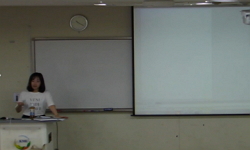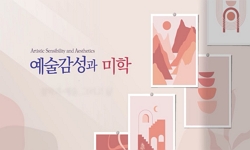Nietzsche's anti-metaphysical understanding of human appeared condensed as ‘Man's Death’ or ‘Death of Subject’. Feministic response related to the declaration on the death of subject varies. That is, there is also a great diversity of response...
http://chineseinput.net/에서 pinyin(병음)방식으로 중국어를 변환할 수 있습니다.
변환된 중국어를 복사하여 사용하시면 됩니다.
- 中文 을 입력하시려면 zhongwen을 입력하시고 space를누르시면됩니다.
- 北京 을 입력하시려면 beijing을 입력하시고 space를 누르시면 됩니다.

여성주의와 니체 그리고 푸코의 새로운 만남 - 계보학적 변형과 예술적 변형의 여성주의적 함의- = Feminism, new Encounter with Nietzsche and Foucault -Feministic Implication of genealogical Transformation and artistic Transformation-
한글로보기https://www.riss.kr/link?id=A104566081
-
저자
김선희 (강원대학교)
- 발행기관
- 학술지명
- 권호사항
-
발행연도
2007
-
작성언어
Korean
-
주제어
Feministic Thinking ; Social-Transformation ; Self-Transformation ; Genealogy ; Art ; 여성주의적 사유 ; 사회변형 ; 자기변형 ; 계보학 ; 예술
-
등재정보
KCI등재후보
-
자료형태
학술저널
-
수록면
31-58(28쪽)
-
KCI 피인용횟수
4
- DOI식별코드
- 제공처
- 소장기관
-
0
상세조회 -
0
다운로드
부가정보
다국어 초록 (Multilingual Abstract)
In response to this feministic critical mind, this writer will search for an answer to the question about whether the relation of feminism with genealogy is skeptical or hopeful, or if the discussion as to the possibility of social transformation is detected in the genealogical thinking and what is an alternative thinking about it, that is, feminism can be secured from the genealogical thinking.
For this purpose, this student, firstly, surveys the theme of transformation in the argument of Butler who is a theorist and owes Nietzsche's genealogical method on essentialism in the relation with Foucault. Secondly, this student studies the matter on ‘self-transformation' and ‘social transformation' which appears as a theme in the process of the critical re-acceptance about genealogy being discussed recently. Thirdly, this writer will materialize Nietzsche's artistic thinking and genealogical thinking about transformation in order to check the discussion over whether the genealogical critical mind can realize such a matter of transformation properly. For the last discussion, this writer will arrange Nietzsche's concept of art mainly understood hitherto, further expand the concept of art and solve the problem of transformation emerging as a topic in the critical argument over the acceptance of the genealogical thinking in the discussion of a modern feminism headed by Nietzsche by means of combining the concept of art with genealogy.
Nietzsche's anti-metaphysical understanding of human appeared condensed as ‘Man's Death’ or ‘Death of Subject’. Feministic response related to the declaration on the death of subject varies. That is, there is also a great diversity of response to Nietzsche's overall attack on essentialism as much as the criticism on essentialism which occupies the heart of the traditional metaphysics which stands parallel to the declaration on the death of man. Recent feministic concern over Nietzsche specially goes for his genealogical thinking. Nowadays the key point in the criticism raised by feministic theorists is the probability of the contribution of genealogy on the matter of transformation. The question raised in this respect is whether a genealogical thinking can secure the liaison between individual transformation and social transformation productively, or a genealogical thinking is dangerous in a feministic thinking as Seyla Benhabib worries about it.
In response to this feministic critical mind, this writer will search for an answer to the question about whether the relation of feminism with genealogy is skeptical or hopeful, or if the discussion as to the possibility of social transformation is detected in the genealogical thinking and what is an alternative thinking about it, that is, feminism can be secured from the genealogical thinking.
For this purpose, this student, firstly, surveys the theme of transformation in the argument of Butler who is a theorist and owes Nietzsche's genealogical method on essentialism in the relation with Foucault. Secondly, this student studies the matter on ‘self-transformation' and ‘social transformation' which appears as a theme in the process of the critical re-acceptance about genealogy being discussed recently. Thirdly, this writer will materialize Nietzsche's artistic thinking and genealogical thinking about transformation in order to check the discussion over whether the genealogical critical mind can realize such a matter of transformation properly. For the last discussion, this writer will arrange Nietzsche's concept of art mainly understood hitherto, further expand the concept of art and solve the problem of transformation emerging as a topic in the critical argument over the acceptance of the genealogical thinking in the discussion of a modern feminism headed by Nietzsche by means of combining the concept of art with genealogy.
참고문헌 (Reference)
1 김선희, "하버마스의 니체 비판에 대한 니체의 가상적 답변: 니체 철학의 규범성에 대한 고찰" 11집 : 2007
2 푸코, "성의 역사 제2권: 자기에의 배려" 1990
3 푸코, "성의 역사 제1권: 쾌락의 활용" 1990
4 니체, "선악의 저편ㆍ도덕의 계보" 책세상 2002
5 니체, "비극의 탄생" 책세상 2005
6 황정미 편역, "미셸 푸코, 섹슈얼리티의 정치와 페미니즘" 새물결 1995
7 김미기, "니체의 진리개념비판에서 본 예술과 여성의 본질" 이문출판사 3집 : 1998
8 김정현, "니체의 몸철학" 지성의 샘 1995
9 이광래, "니체와 푸코: 니체의 상속인으로서의 푸코" 한국니체학회 (4) : 9-28, 2001
10 김선희, "니체에 있어서 관점과 해석의 문제: 관점에 대한 아이러니한 태도" 19집 : 2007
1 김선희, "하버마스의 니체 비판에 대한 니체의 가상적 답변: 니체 철학의 규범성에 대한 고찰" 11집 : 2007
2 푸코, "성의 역사 제2권: 자기에의 배려" 1990
3 푸코, "성의 역사 제1권: 쾌락의 활용" 1990
4 니체, "선악의 저편ㆍ도덕의 계보" 책세상 2002
5 니체, "비극의 탄생" 책세상 2005
6 황정미 편역, "미셸 푸코, 섹슈얼리티의 정치와 페미니즘" 새물결 1995
7 김미기, "니체의 진리개념비판에서 본 예술과 여성의 본질" 이문출판사 3집 : 1998
8 김정현, "니체의 몸철학" 지성의 샘 1995
9 이광래, "니체와 푸코: 니체의 상속인으로서의 푸코" 한국니체학회 (4) : 9-28, 2001
10 김선희, "니체에 있어서 관점과 해석의 문제: 관점에 대한 아이러니한 태도" 19집 : 2007
11 Nietzsche, Friedrich Wilhelm, "Zur Genealogie der Moral"
12 Foucault, Michel, "Was ist Kritik" 1992
13 Foucault, Michel, "Was ist Aufklarung" 1990
14 Nietzsche, Friedrich Wilhelm, "Ueber Wahrheit und Luge im aussermoralischen Sinne"
15 Flax, Jane, "Thinking Fragments" 1990
16 Foucault, Michel, "Sexualitat und Wahrheit" 1986
17 Foucault, Michel, "Sexualitat und Wahrheit" 1986
18 Nietzsche, Friedrich Wilhelm, "Samtliche Werke. Kritische Studienausgabe" 1980
19 McNay, Louis, "Problem of Justification" Polity Press 1992. 1992
20 Foucault, Michel, "Nietzsche, die Genealogie, die Historie" Frankfurt/M 11 : 2002
21 Fraser, Nancy, "Michel Foucault: Ein >>Jungkonservativer<<" 1994
22 Honeth, Axel, "Michel Foucault Zwischenbilanz einer Rezeption" Frankfurt/M 2001
23 Benhabib, Seyla, "Kommunikative Ethik im Spannungsfeld von Feminismus" Frankfurt a/M 1995
24 Nietzsche, Friedrich Wilhelm, "Jenseits von Gut und Bose"
25 Sun-Hye, Kim, "Genealogie und Ironie: Die Verbindung von Asthetischem und Ethischem bei Nietzsche" Berlin 2006
26 Allen, Amy,, "Foucault, Feminism, and the Self: The Poltics of Personal Transformation" Urbana and Chicago 235-257, 2004
27 Oksala, Johanna, "Foucault on Freedom" New York 2005
28 McLaren, A. Margaret, "Foucault and Feminism: Power, Resistence, Freedom" Urbana/Chicago 214-234, 2004
29 Patton, Paul, Nietzsche, "Feminism and Political Theory" 1993
30 Nietzsche, Friedrich Wilhelm, "Die Geburt der Tragodie"
31 Butler, Judith, "Das Unbehagen der Geschlechter" 1991
32 Schmid, Wilhelm,, "A Auf der Suche nach einer neuen Lebenskunst" Frankfurt a/M 2000
동일학술지(권/호) 다른 논문
-
평화의 정치학을 위한 모성적 사유 - 남성중심적 안보 개념에 대한 비판-
- 한국여성철학회
- 권김현영
- 2007
- KCI등재후보
-
- 한국여성철학회
- 허라금
- 2007
- KCI등재후보
-
- 한국여성철학회
- 김혜련
- 2007
- KCI등재후보
-
- 한국여성철학회
- 노성숙
- 2007
- KCI등재후보
분석정보
인용정보 인용지수 설명보기
학술지 이력
| 연월일 | 이력구분 | 이력상세 | 등재구분 |
|---|---|---|---|
| 2026 | 평가예정 | 재인증평가 신청대상 (재인증) | |
| 2020-01-01 | 평가 | 등재학술지 유지 (재인증) |  |
| 2017-01-01 | 평가 | 등재학술지 유지 (계속평가) |  |
| 2013-01-01 | 평가 | 등재학술지 유지 (등재유지) |  |
| 2010-01-01 | 평가 | 등재학술지 선정 (등재후보2차) |  |
| 2009-01-01 | 평가 | 등재후보 1차 PASS (등재후보1차) |  |
| 2008-01-01 | 평가 | 등재후보 1차 FAIL (등재후보1차) |  |
| 2006-01-01 | 평가 | 등재후보학술지 선정 (신규평가) |  |
학술지 인용정보
| 기준연도 | WOS-KCI 통합IF(2년) | KCIF(2년) | KCIF(3년) |
|---|---|---|---|
| 2016 | 0.95 | 0.95 | 0.82 |
| KCIF(4년) | KCIF(5년) | 중심성지수(3년) | 즉시성지수 |
| 0.77 | 0.76 | 1.515 | 0.08 |




 KCI
KCI







